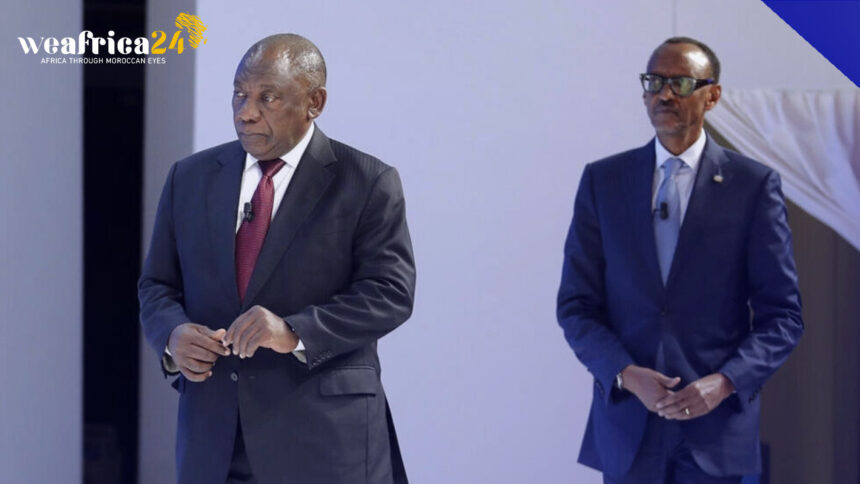Despite recent strains, there is a clear commitment from the leadership of both South Africa and Rwanda to normalize their relations, as evidenced by their meeting in Kigali last weekend on the sidelines of the Tutsi genocide commemorations.
Efforts to mend ties between the two nations are not novel, but they have encountered obstacles, notably since the assassination of former Rwandan intelligence chief Patrick Karegeya in Johannesburg in 2013. Further tensions arose with the advent of Cyril Ramaphosa’s presidency, particularly following a meeting between South Africa’s Foreign Minister and Rwandan dissident Faustin Kayumba Nyamwasa.
However, both leaders have expressed their determination to continue dialogue and “address challenges,” as described by President Ramaphosa during his visit to Kigali on the thirtieth anniversary of the genocide.
A significant point of contention persists: the operations in eastern DRC by the Southern African Development Community (SADC), under South African command. Rwanda, accused of supporting M23 rebels, views these operations with suspicion and accuses participating states of being manipulated.
For Cyril Ramaphosa to effectively mediate in the conflict, he must engage in constructive dialogue with his Rwandan counterpart. Similarly, Rwanda must nurture its relations to secure cooperation from South Africa, particularly regarding extradition requests for genocide suspects like Fulgence Kayishema and visa facilitation for Rwandan nationals.
Following the commemorations, Cyril Ramaphosa accepted the credentials of Rwanda’s new ambassador to Pretoria, Emmanuel Hategeka, signaling an openness to communication channels.
These developments underscore a positive trajectory in South Africa-Rwanda relations, emphasizing the importance of dialogue and cooperation in addressing regional challenges and fostering mutual trust and understanding.







